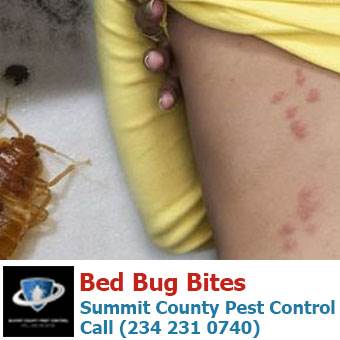Reliable A1 Bed Bug Treatment Houston - Eliminate Bed Vermin
Reliable A1 Bed Bug Treatment Houston - Eliminate Bed Vermin
Blog Article
Understanding the Lifecycle of Pests for Targeted Control Strategies
Understanding the lifecycle of bugs is a basic aspect of effective pest management methods. Via a much deeper understanding of exactly how insects flourish and evolve, tailored control techniques can be designed to attend to particular factors in their lifecycle, ultimately leading to more effective parasite monitoring results.
Relevance of Comprehending Parasite Lifecycle
Understanding the lifecycle of insects is important for establishing effective and targeted control techniques in parasite administration. By understanding the various stages a bug goes with from egg to adult, bug control specialists can identify at risk factors in the lifecycle where intervention can be most effective.
In addition, acknowledging the certain environmental conditions necessary for each stage of the parasite's lifecycle can guide choices on environment alteration or exclusion approaches to interrupt the lifecycle and minimize insect populations. This expertise enables pest management experts to apply aggressive steps as opposed to depending only on reactive treatments, bring about more lasting and lasting pest control remedies. Ultimately, a detailed understanding of bug lifecycles encourages parasite control professionals to tailor their methods successfully, optimizing and decreasing ecological influences control end results.
Trick Stages in Bug Growth
To successfully execute targeted control methods in insect management, an important facet lies in thoroughly recognizing and understanding the crucial phases in parasite advancement. Insect advancement usually is composed of a number of essential stages that are important for their lifecycle and management.

Vulnerabilities in Parasite Lifecycle
Throughout the numerous stages of a parasite's lifecycle, distinctive vulnerabilities emerge that can be tactically targeted for efficient control actions. One vital vulnerability lies in the egg phase, where insects are typically a lot more vulnerable to specific pesticides or organic control representatives due to their soft external covering, making them easier targets for intervention. Furthermore, the larval or nymph phase provides vulnerabilities as insects go through rapid growth and development, calling for high power usage that can be manipulated by interrupting their food resources or presenting growth inhibitors. Pupal phases, defined by stability and transformation, use a window for targeted control through physical obstacles or specific treatments that impede effective introduction. Ultimately, adult pests, while a lot more resilient because of their reproductive capacity, can still be vulnerable throughout mating or egg-laying tasks, which can be interfered with through scent catches or sanitation methods. Recognizing these susceptabilities in the parasite lifecycle is vital for establishing efficient and exact control methods that properly take get more care of parasite populations while lessening environmental impact.
Carrying Out Targeted Control Steps

Implementing targeted control actions usually involves a multi-faceted strategy. This may consist of environment alteration to sites make the setting much less welcoming to bugs, such as eliminating standing water for mosquito control or sealing access points for rodents. In addition, organic control techniques can be used, where natural killers or pathogens are presented to maintain pest populations in check.
Chemical control, such as the mindful application of pesticides, is an additional common strategy. It is essential to make use of these compounds judiciously to minimize ecological impact and prospective harm to non-target types - A1 Bed bug Exterminator houston. Integrated Pest Administration (IPM) techniques that combine various control measures in a collaborated and sustainable fashion are frequently one of the most reliable in accomplishing lasting pest management goals. By applying targeted control steps based upon a detailed understanding of insect lifecycles, insect populations can be effectively regulated while lessening dangers to human health and the environment.
Boosted Insect Management Practices

Moreover, the consolidation of biological control Website agents, such as all-natural predators or pathogens of parasites, can aid minimize dependence on chemical pesticides and promote an extra balanced ecological community. Carrying out physical barriers and traps can also be part of improved insect monitoring practices, supplying non-toxic and targeted solutions for insect control. Additionally, using scents and various other semiochemicals can interrupt pest breeding patterns and communication, causing minimized pest populations over time.
Verdict
In verdict, comprehending the lifecycle of parasites is important for efficient insect administration techniques. By identifying key stages in parasite advancement and susceptabilities in their lifecycle, targeted control steps can be carried out to reduce insect populaces. Boosted pest monitoring techniques can help in reducing the dependence on broad-spectrum chemicals and promote even more sustainable and ecologically friendly insect control methods. This knowledge plays an important function in keeping healthy and balanced ecosystems and agricultural efficiency.
Recognizing the lifecycle of parasites is necessary for creating effective and targeted control approaches in parasite administration. By understanding the numerous stages an insect goes via from egg to grownup, bug control professionals can identify prone factors in the lifecycle where treatment can be most effective. Eventually, a complete understanding of parasite lifecycles equips parasite control professionals to customize their techniques properly, lessening environmental influences and making best use of control outcomes.
By carrying out targeted control procedures based on a detailed understanding of pest lifecycles, pest populaces can be successfully regulated while minimizing dangers to human wellness and the setting.
By determining essential stages in bug growth and vulnerabilities in their lifecycle, targeted control actions can be carried out to lessen parasite populations.
Report this page